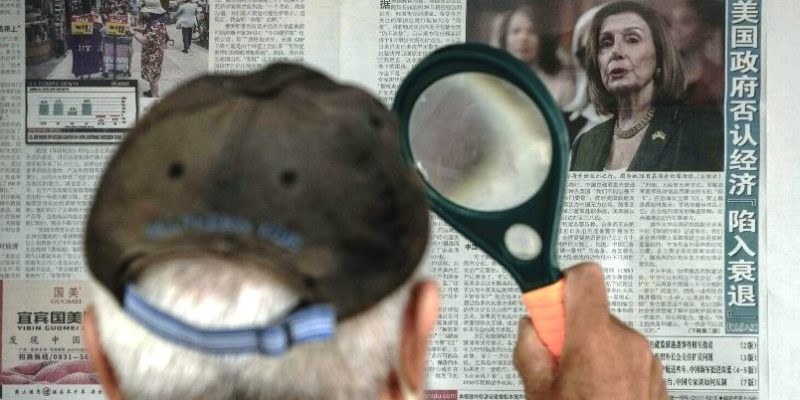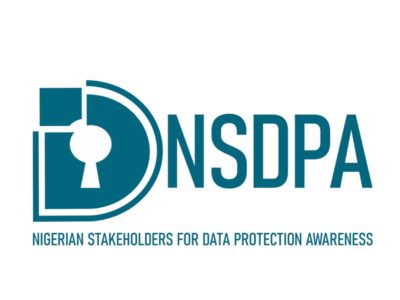Nancy Pelosi just arrived in Taiwan. China is expressing extreme displeasure. In normal times, this might not be an issue for the mobile telecom industry. But things are different today. China is not the same country it was 10 years ago, and Taiwan, home to 90 percent of the world’s semiconductor manufacture, has geopolitical significance.
Upon Pelosi touching down in Taipei, she was greeted with Chinese fighter jets. China has promised missile tests and military exercises around the independent island nation in the South China Sea. Russia also weighed in, supporting its comrades in China. Naturally the two totalitarian leaders challenge the sovereignty of Taiwan.
RELATED: Everyone talks about OpenRAN, but no one buys it – Strand Consult reports
Strand Consult is not surprised of the reaction. In its research notes, Strand Consult observed that many leaders were naïve about Russia’s view of Ukraine. They did not believe an invasion would happen. Now that Russia has invaded Ukraine, the world’s energy and food supply are under stress and Putin promises more damage.
Just as Russia exploits Europe’s dependence on gas, China will exploit the world’s dependence on its information technology industry. Just as Russia threatens to turn off the gas, China can also turn the screws with its IT products and services. Huawei and ZTE enjoy broad and deep installation in Europe, Africa, and Latin America. Lenovo is the world’s leading make of laptops; DJI of drones; Hikvision of video cameras; and TikTok of video entertainment.
Mobile telecom companies need to have a plan to respond should China invade Taiwan. Here are some research notes to put this development into perspective.
Is your telecom infrastructure ready for General Secretary Xi to deliver on his Taiwan promise?
Some time ago the US Federal Communications Commission (FCC) voted unanimously to revoke the license of China Telecom to provide domestic interstate and international telecommunications services within the United States. The order is based in part on the April 2020 recommendation of the Department of Justice (DOJ) and related Executive Branch agencies (collectively “Team Telecom”) and reflects a specific proceeding launched in December 2020 in which the FCC asked China Telecom to address its concerns.
Many questions US-China policy as mere trade tactics or whether there are legitimate threats. The situation in Taiwan should leave no doubt that People’s Republic of China (PRC) General Secretary Xi intends to deliver on his promise: join the PRC or else. He underscored the point by sending dozens of military jets into Taiwan airspace. However the PRC’s main form of intrusion is via telecom networks. Taiwan’s Ministry of Foreign Affairs reports that cyberattacks by the PRC increased 40-fold in 2020 from 2018. It has recorded 778,000 intrusions in 2020, or 2,100 per day.
If the PRC violates Taiwan’s sovereignty, many around the world are likely to express their condemnation and could retaliate through sanctions and other measures. The PRC could order Huawei and ZTE to interfere, slow, or shut down communications networks in countries with conflicting views to the PRC’s Taiwan policy. It need not look like a bold block but could be remote access enabled surreptitiously via kill switch on Chinese equipment inside a network component. Read more.
What the world would look like if Huawei was Russian?
Growing aggression by Russia and China have put infrastructure security for energy and telecommunications in center stage. Policymakers recognize that the cost of Russian gas and Chinese information communication technology (ICT) is far higher than its seeming low price on the paper. Given the Russian invasion of Ukraine and China’s belligerence on Taiwan, many countries now attempt to curtail their relations with Russia and China. However some political leaders and companies have downplayed the security risks of Russia and China and have even deepened engagement. This puts the rest of Europe at risk.
At the Singapore dialogue meeting last week US Defense Secretary Lloyd Austin told his Chinese counterpart General Wei Fenghe that the US is committed to its One China policy in Taiwan but warned the Chinese military of become increasingly aggressive in the region. After the meeting a Chinese defense ministry spokesman said Wei reiterated Beijing’s firm stance on Taiwan, which is that it is part of China.
“The PLA (People’s Liberation Army) would have no choice but to fight at any cost and crush any attempt of Taiwan independence, safeguarding national sovereignty and territorial integrity,” he said. Given Russia’s invasion of Ukraine, policymakers and telecom operators should reflect on the consequences of further instability.
As we recognize Europe´s dependency of Russian gas, we should think similarly about dependence Chinese ICT. Read more.
Customer choice: All countries should have at least one mobile network free from Chinese tech like Huawei and ZTE
The debate about the security of telecom network equipment has grown in recent years with focus on suppliers like Huawei and ZTE. Strand Consult has produced many reports and analyses to provide the needed facts and transparency to understand the issue.
The report Understanding the Market for 4G RAN in Europe: Share of Chinese and Non-Chinese Vendors in 102 Mobile Networks provides a fact-based accounting of the amount of Huawei and ZTE equipment in European mobile networks. This is important information for consumers to make informed decisions about which mobile operator they choose.
Telecom networks are the foundation of the digital society. COVID19 proved that telecom networks are essential, as they have allowed people to work, learn, shop, and get healthcare from home during a period of lockdown and social distancing. Consequently, the importance of security and resilience of these networks is heightened. Policymakers are justifiably concerned about the vulnerabilities of these networks. The want to examine the network elements–their vendors, supply chains, and protocols and adopt measures to secure them.
Many countries have implemented restrictions on Huawei and ZTE. These restrictions have followed extensive investigations which have uncovered many red flags including but not limited to the inability to establish the technical baseline that the systems are not compromised by backdoors, inability to demonstrate that the Chinese government and military are not integrated with the enterprise, lack of operational and financial transparency and disclosure, illegal and unethical business practices, and violation of international law.
These investigations also follow the hardening of the Chinese regime under General Secretary Xi Jingping and the demonstrated aggression and repression against the people in Hong Kong, Xinjiang, and Tibet in addition to the widespread implementation of surveillance technologies and practices on the Chinese people. Thus restricting the implicated firms and technologies is a prudent response from a nation which wants to protect the privacy, sovereignty, and security of its people and assets.
This is hardly a new concept; NATO has never purchased Chinese fighter jets or Russian submarines or Huawei telecom equipment. It follows that in a world with a new threat landscape, policymakers need to review and update the standards for telecom network equipment. Read more.
Strand Consult hopes that the tensions between China and Taiwan de-escalate. However there is little optimism. Free countries have foolishly transferred valuable manufacturing and other know-how to China with abandon. Consider how US companies continue to sell cutting edge semiconductor manufacturing equipment to Chinese military fab YMTC in violation of international export control norms. And yet, the US Department of Commerce has done little for years. Maybe the recent intervention of the US Senate Majority leader will make a difference.
Mobile telecom operators should reject Chinese suppliers, and so should governments. At least that is the effort from the US state of Georgia with a new law which forbids the state to contract or purchase products from companies owned, affiliated, or controlled by China, Russia, or Belarus. Taxpayers are right to demand that their funds not be used to support governments which commit human rights atrocities.
Some may argue that China would not shut down the networks built with Huawei and ZTE equipment; they are likely the same people who don’t find Putin or Xi problematic. In any event, Strand Consult cannot name one CEO who can guarantee that a network built with Chinese government equipment is free from Chinese government intrusion.
Mobile telecom operators should take note of what’s happening in Taiwan. Strand Consult will continue to monitor the situation. To learn more, contact John Strand.
Original title by Strand Consult: ‘You ain’t seen nothing yet V – Nancy Pelosi in Taiwan. What it means for the mobile telecom industry.’

































